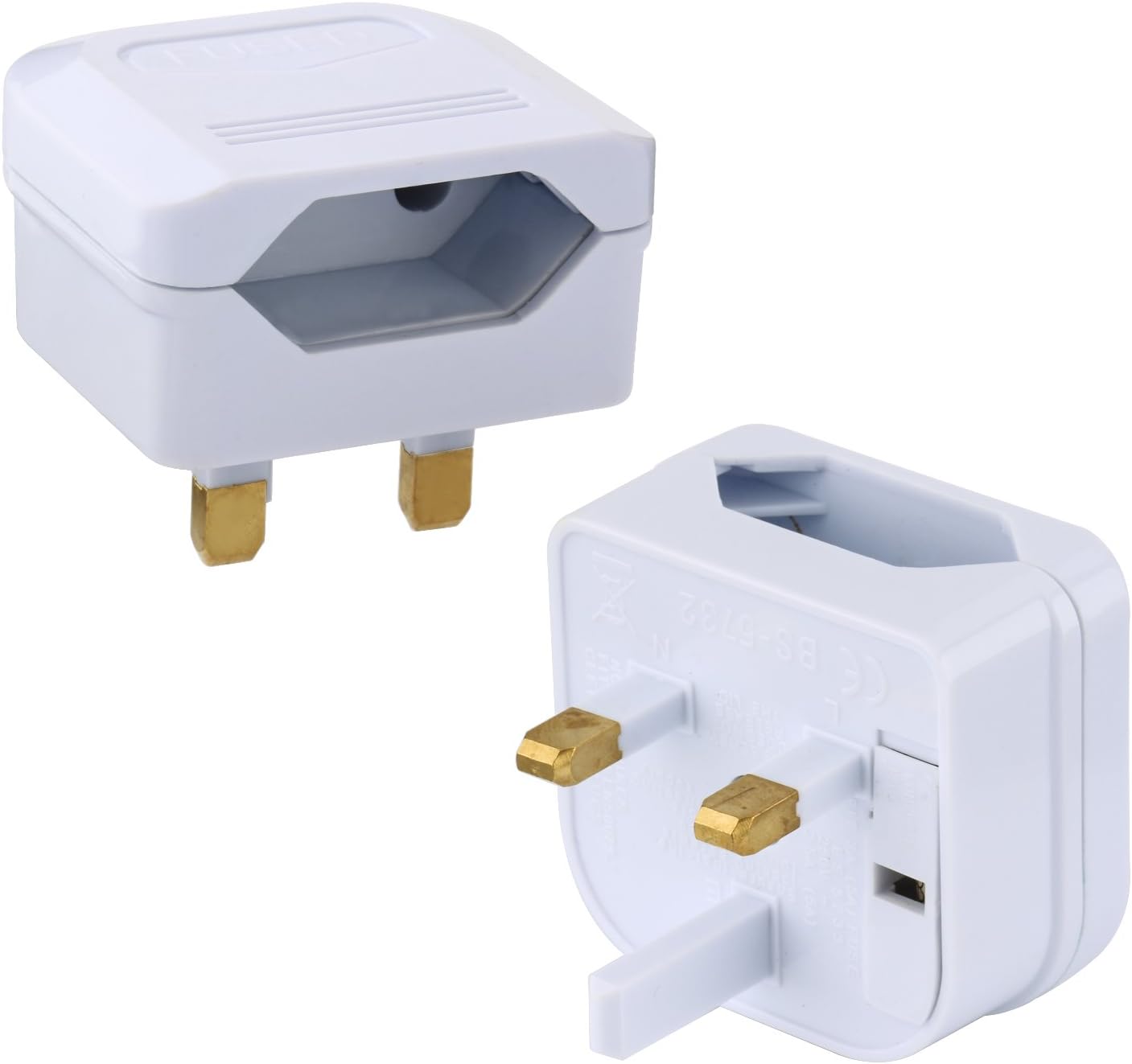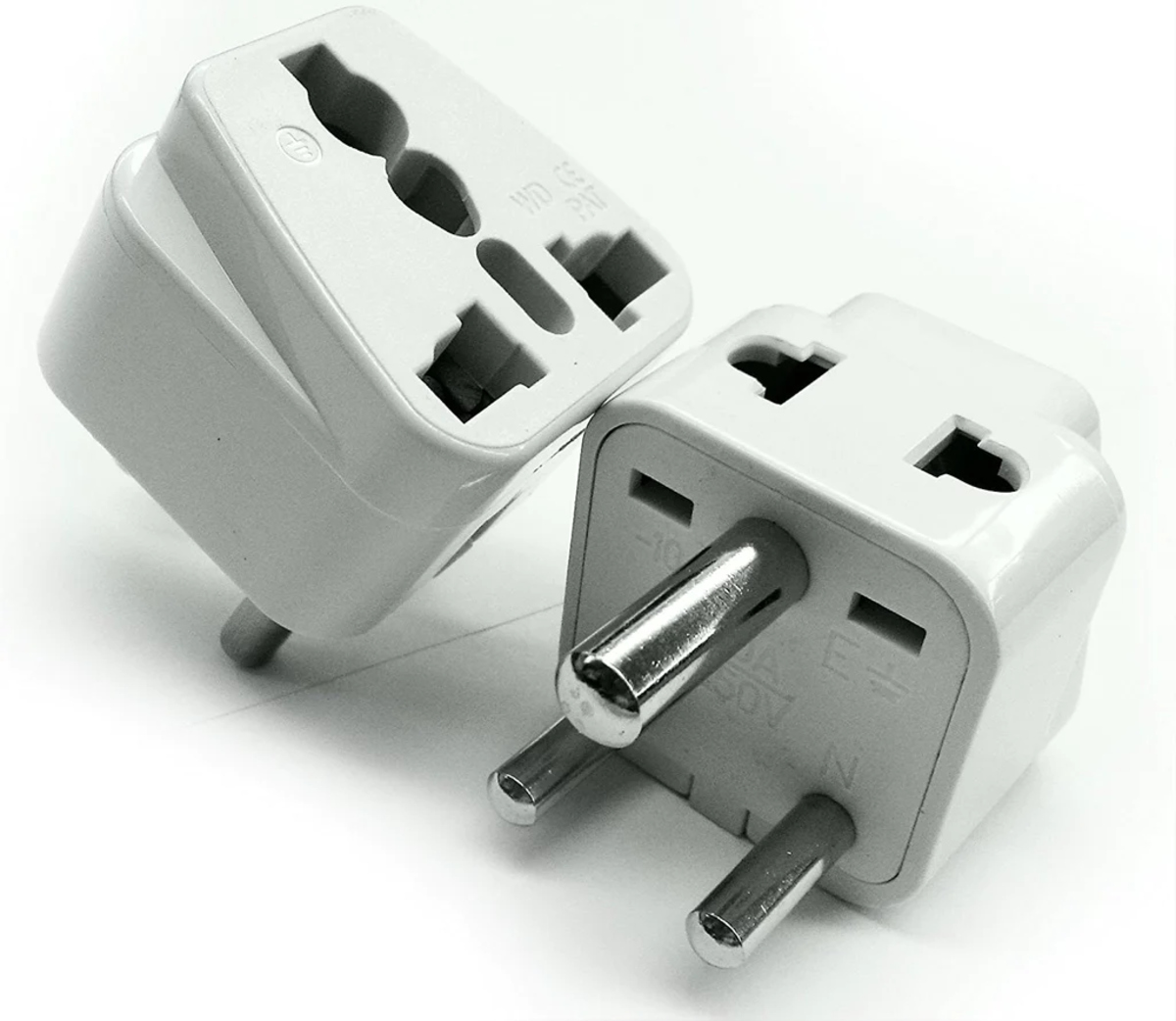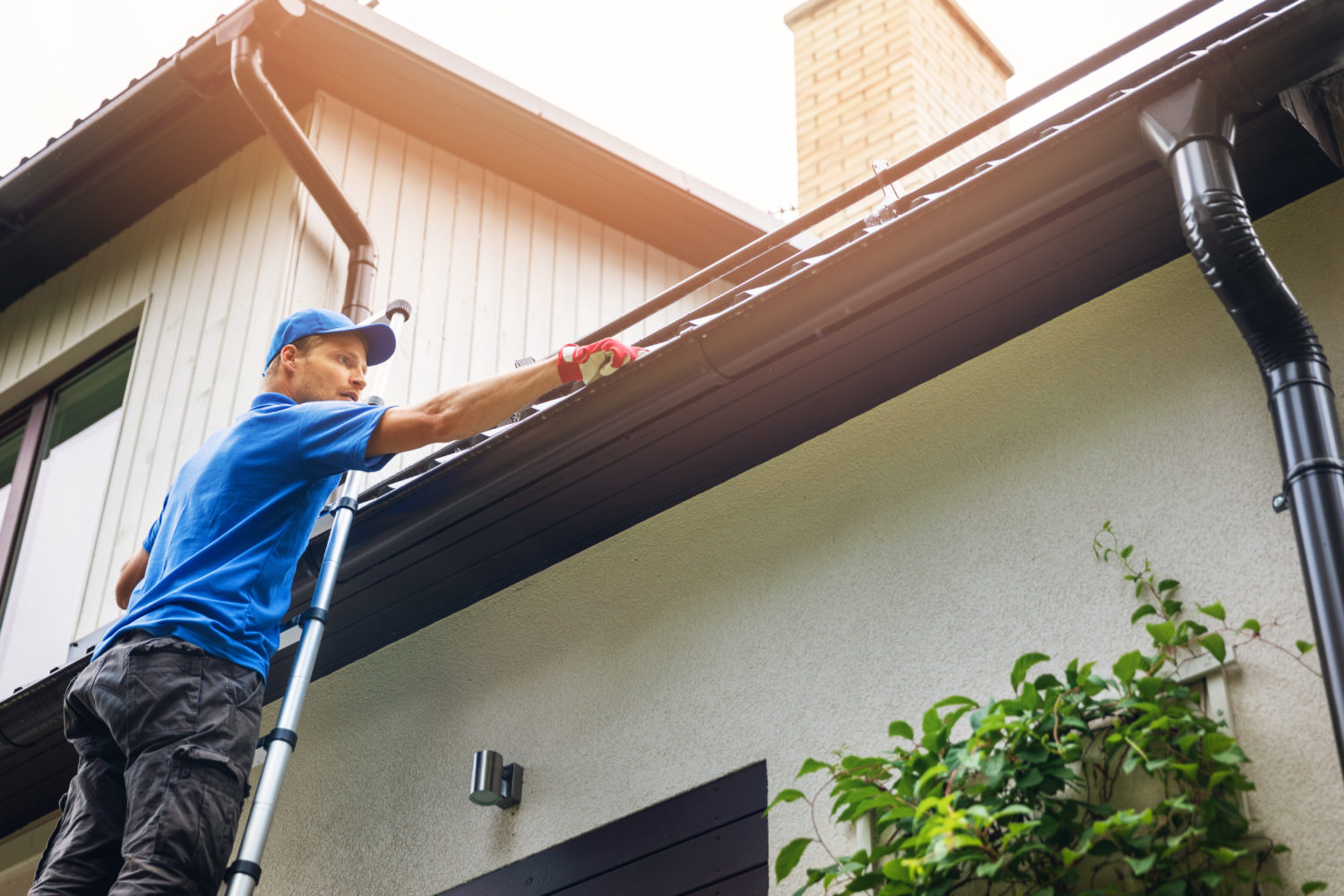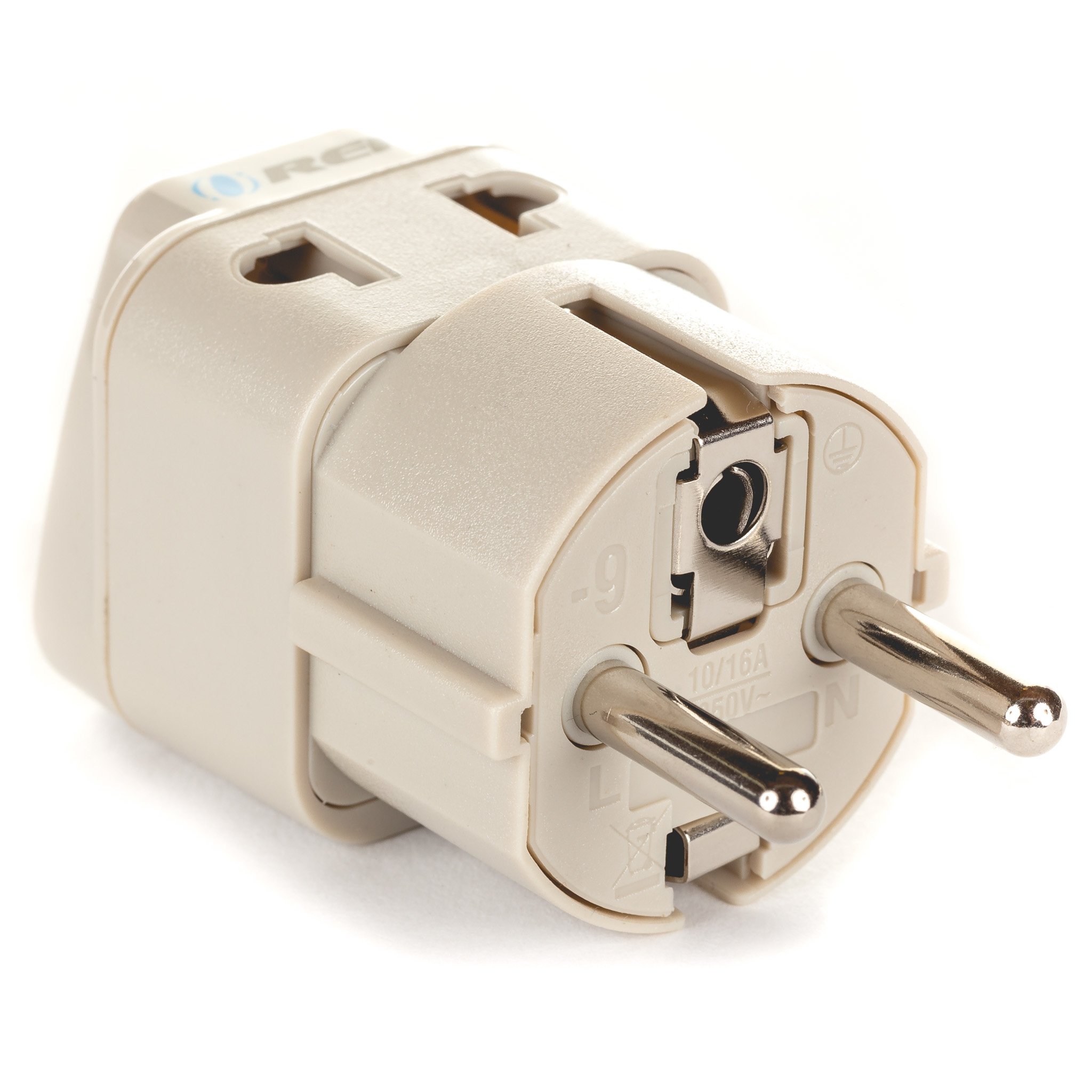Home>Home Security and Surveillance>What Is GSM For Alarm Systems? Do I Need A Phone Line?
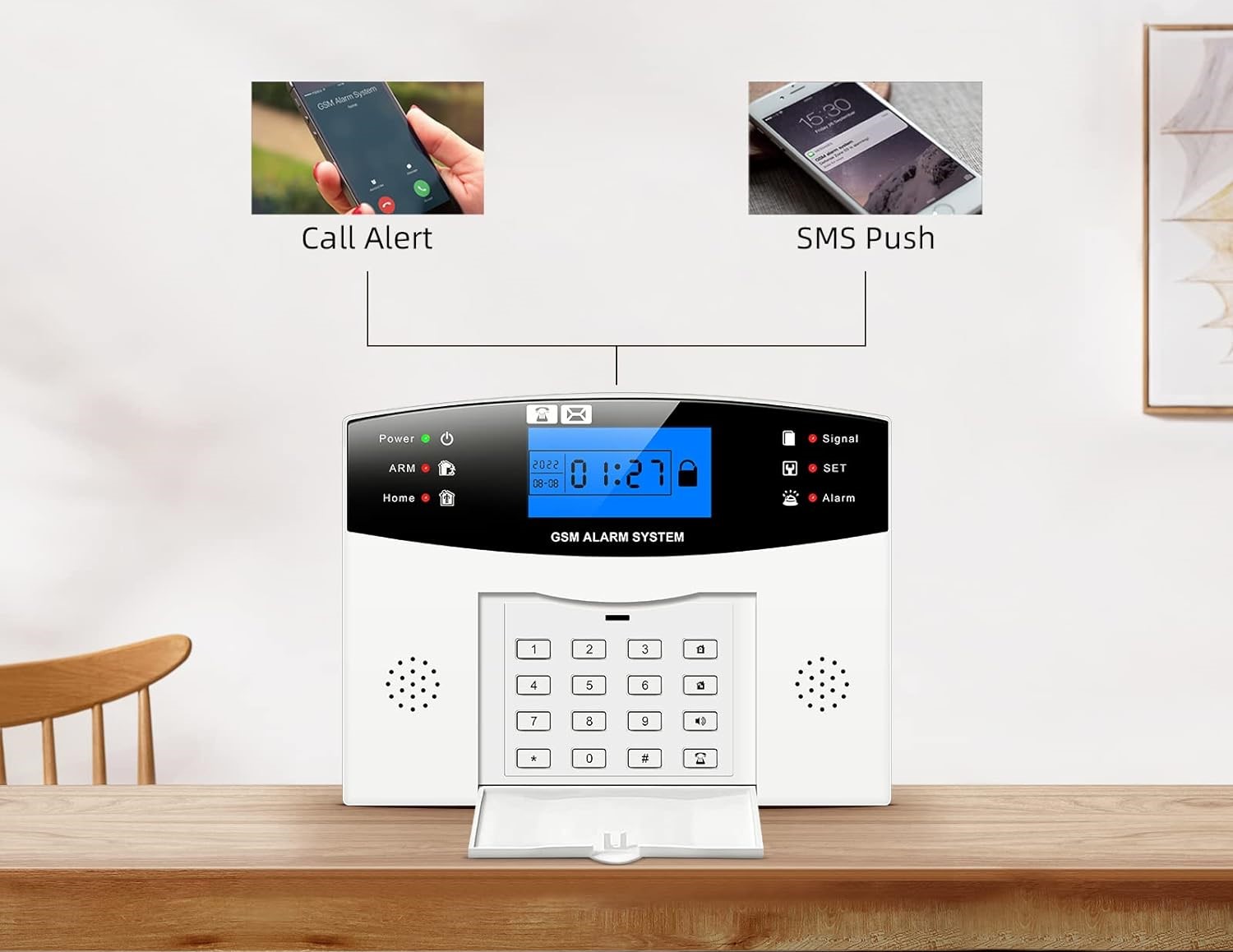

Home Security and Surveillance
What Is GSM For Alarm Systems? Do I Need A Phone Line?
Modified: March 6, 2024
Learn about GSM for alarm systems and whether you need a phone line for home security and surveillance. Find out how it can enhance your safety and convenience.
(Many of the links in this article redirect to a specific reviewed product. Your purchase of these products through affiliate links helps to generate commission for Storables.com, at no extra cost. Learn more)
Introduction
In today’s fast-paced world, home security and surveillance have become vital concerns for homeowners. The need for reliable and effective security systems has led to the evolution of various technologies, one of which is GSM (Global System for Mobile Communications). This article aims to shed light on GSM for alarm systems and address one common question: do you need a phone line for GSM?
First, let’s understand what GSM is and how it relates to home security systems.
Key Takeaways:
- GSM technology revolutionizes home security by eliminating the need for a phone line, offering reliable wireless communication, remote access, and cost-effectiveness.
- GSM alarm systems provide real-time monitoring, instant alerts, and seamless communication via cellular networks, ensuring reliable and efficient home security.
What is GSM?
GSM, which stands for Global System for Mobile Communications, is a widely used communication standard for mobile phones. It is a digital network technology that enables mobile devices to connect, communicate, and transmit data over cellular networks.
GSM is a digital standard that provides secure and reliable voice communication, as well as data transfer capabilities. It is the most prevalent mobile network technology globally, serving billions of users worldwide.
The GSM standard was introduced in the 1980s as an upgrade to the existing analog mobile networks. It revolutionized wireless communication by providing better voice quality, improved network coverage, and efficient call handovers between cell towers.
One of the key features of GSM is its ability to support SMS (Short Message Service), enabling text messaging between mobile phones. This feature opened up new possibilities for communication and became an essential part of our daily lives.
Over the years, GSM technology has evolved with the introduction of higher data transfer speeds and improved network capabilities. Today, GSM networks provide not only voice and SMS services but also internet connectivity, allowing users to browse the web, stream media, and access various online services through their mobile devices.
GSM technology has also found its applications beyond mobile phones. It is widely used in various industries, including home security and surveillance systems.
GSM for Alarm Systems
GSM technology has significantly impacted the home security and surveillance industry by providing a reliable and versatile communication solution for alarm systems.
Traditionally, home alarm systems relied on landline telephone connections to communicate with the monitoring center. However, with the advent of GSM technology, alarm systems can now use cellular networks to transmit signals and alerts.
By integrating GSM modules or SIM cards into alarm systems, homeowners can enjoy seamless communication between their security system and the monitoring center without the need for a physical phone line.
The use of GSM for alarm systems offers several advantages over traditional landline connections:
- Reliability: GSM networks are known for their reliability and wide coverage. Unlike landline connections, which can be vulnerable to outages or physical damage, GSM-based alarm systems can remain functional even during power outages or when traditional phone lines are down.
- Security: GSM communications are encrypted, ensuring secure transmission of alarm signals and data. This encryption provides an extra layer of protection against potential hackers or unauthorized access.
- Flexibility: With GSM-based alarm systems, homeowners are not restricted to a specific location. They can set up their security system anywhere with cellular network coverage. This flexibility is especially beneficial for those who frequently move or have multiple properties.
- Remote Access: GSM-enabled alarm systems often come with mobile apps or web interfaces that allow homeowners to remotely monitor and control their security system. Whether you’re at work, on vacation, or simply away from home, you can receive real-time alerts, arm or disarm the alarm, and view surveillance footage.
- Cost-Effectiveness: In some cases, using GSM for alarm systems can be more cost-effective than maintaining a landline connection. Homeowners can save on monthly landline fees and avoid additional charges for long-distance calls or international monitoring services.
Overall, GSM technology has revolutionized how alarm systems operate, making home security more accessible, reliable, and convenient for homeowners.
Benefits of GSM for Alarm Systems
Choosing GSM technology for your alarm system can bring several benefits that enhance the security and functionality of your home. Here are some of the key advantages:
- Reliability: GSM networks are known for their reliability. Unlike traditional landline connections, which can be vulnerable to weather conditions, physical damage, or power outages, GSM-based alarm systems remain functional in various situations. This ensures continuous protection for your home and peace of mind for you and your family.
- Easy Installation: GSM alarm systems are typically easy to install, as they do not require additional wiring or connections to a landline phone. This makes it convenient for homeowners, as they can set up the system themselves or with the help of a professional without any hassle.
- Remote Monitoring: GSM-enabled alarm systems provide the convenience of remote monitoring. With the use of mobile apps or web interfaces, homeowners can receive real-time notifications, remotely arm or disarm the system, and even view live video feeds from surveillance cameras.
- Instant Alerts: In the event of an intrusion or emergency, GSM alarm systems can quickly transmit alerts to the homeowners and monitoring center. This allows for swift action to be taken, such as notifying authorities or dispatching security personnel to the property.
- Wireless Communication: With GSM technology, alarm systems no longer rely on physical connections like phone lines. The wireless communication provided by GSM ensures greater flexibility and convenience, as homeowners are not limited by the availability or location of landline connections.
- Compatibility: GSM alarm systems are compatible with various sensors and accessories, including door/window sensors, motion detectors, smoke detectors, and more. This allows homeowners to customize their security system according to their specific needs and expand it as required.
- Secure Communication: GSM networks offer encryption and secure communication protocols, ensuring that the alarm signals and data transmitted between the system and monitoring center are protected from unauthorized access or tampering.
- Cost-Effectiveness: In many cases, using a GSM-based alarm system can be more cost-effective compared to traditional landline setups. By eliminating the need for a dedicated phone line, homeowners can save on monthly fees and avoid additional charges for long-distance calls or international monitoring services.
Overall, the benefits of GSM for alarm systems make it a compelling choice for homeowners looking for reliable, flexible, and convenient home security solutions.
Do I Need a Phone Line for GSM?
No, you do not need a phone line for GSM-based alarm systems. One of the main advantages of using GSM technology is that it allows for wireless communication, eliminating the need for a physical phone line.
Traditional alarm systems often relied on landline connections to transmit signals and alerts to the monitoring center. However, with the advancement of technology and the widespread availability of cellular networks, alarm systems can now use GSM modules or SIM cards to communicate over these networks.
GSM-based alarm systems use the same cellular networks that your mobile phone uses. The system is equipped with a GSM module or SIM card, which enables it to establish a connection with the cellular network and transmit signals and alerts to the monitoring center.
This means that even if you do not have a landline phone or do not want to rely on a landline connection, you can still benefit from the security and convenience of a GSM alarm system.
GSM-based alarm systems are not only independent of physical phone lines but also offer greater flexibility in terms of location. As long as there is cellular network coverage, you can set up your alarm system anywhere, whether it’s your primary residence, vacation home, or rental property.
Moreover, by using a GSM-based alarm system, you can enjoy the benefits of remote access and control. Many GSM alarm systems come with mobile apps or web interfaces that allow you to monitor and control your security system from anywhere using your smartphone or computer.
Overall, GSM technology for alarm systems eliminates the need for a phone line and provides a reliable, flexible, and convenient solution for home security. Whether you have a landline or not, you can take advantage of the seamless communication offered by GSM-based alarm systems.
Tip: GSM for alarm systems stands for Global System for Mobile communication. It allows the alarm system to communicate using cellular networks instead of a traditional phone line. This can provide a more reliable and secure connection for your alarm system.
How GSM Alarm Systems Work
GSM alarm systems work by utilizing the Global System for Mobile Communications (GSM) technology and cellular networks to transmit signals and alerts between the security system and the monitoring center. Here’s a breakdown of how these systems operate:
- Alarm Conditions: When an alarm condition is triggered, such as a break-in, fire, or motion detection, the sensors in the alarm system detect the event and send a signal to the control panel.
- GSM Module: The control panel of the alarm system is equipped with a GSM module or SIM card. This module acts as a communication gateway between the alarm system and the cellular network.
- Signal Transmission: Once an alarm condition is detected and verified by the control panel, the GSM module initiates communication with the cellular network. It establishes a connection by using the SIM card’s unique identifier and the associated mobile network operator’s network.
- Alert Notification: The control panel sends an alert notification to the monitoring center through the cellular network. This notification includes information about the triggered alarm event, such as the type of alarm and the location of the property.
- Monitoring Center Response: Upon receiving the alert notification, the monitoring center takes appropriate action based on the type of alarm. They may contact the homeowner to verify the alarm, dispatch emergency services, or take other necessary steps to ensure the safety and security of the property.
- User Notifications: In addition to alerting the monitoring center, GSM alarm systems can also send notifications directly to the homeowner’s mobile device or computer. This provides real-time updates and allows homeowners to take action, such as remotely arming or disarming the system or viewing live video feeds from surveillance cameras.
GSM alarm systems offer several advantages, such as reliable communication, wide coverage, secure encryption, and remote access. They provide homeowners with peace of mind, knowing that their property is protected and any alarm events will be quickly transmitted to the appropriate authorities for a swift response.
It’s important to note that GSM alarm systems require a reliable cellular network connection to function properly. It’s recommended to choose a reputable mobile network operator with good coverage in your area to ensure seamless communication between your alarm system and the monitoring center.
GSM Alarm System Components
A GSM alarm system is composed of several key components that work together to provide effective home security. Here are the main components typically found in a GSM alarm system:
- Control Panel: The control panel is the central hub of the alarm system. It receives signals from various sensors and devices and manages the communication with the monitoring center through the GSM module or SIM card.
- Sensors: Sensors are essential for detecting and alerting the alarm system to any unusual activity or alarm conditions. These can include door/window sensors, motion detectors, glass breakage sensors, smoke detectors, and more. When a sensor is triggered, it sends a signal to the control panel to initiate the alarm process.
- Keypad or Control Interface: The keypad or control interface allows homeowners to interact with the alarm system. It enables them to arm or disarm the system, enter access codes, and view the status of the system. Some GSM alarm systems also come with touchscreens or mobile apps for remote control and monitoring.
- Siren: The siren is an audible alert device that emits a loud sound when an alarm event is triggered. It serves as a deterrent to intruders and alerts occupants to the presence of a potential threat.
- Communication Module: The communication module, often in the form of a GSM module or SIM card, enables the alarm system to connect and communicate with the cellular network. It transmits signals and alerts to the monitoring center, allowing for real-time monitoring and response.
- Backup Battery: To ensure the alarm system remains operational during power outages, a backup battery is typically included. This battery provides temporary power to the system, allowing it to continue functioning and transmitting signals even when the main power source is not available.
- Surveillance Cameras: Some GSM alarm systems may include surveillance cameras for visual monitoring of the property. These cameras can capture and transmit live video feeds to the homeowner’s mobile device or computer, providing added security and peace of mind.
- Mobile App/Web Interface: Many GSM alarm systems come with mobile apps or web interfaces that allow homeowners to control and monitor their security system remotely. These interfaces provide features such as real-time notifications, system arming/disarming, video streaming, and access to system settings and logs.
Each of these components plays a crucial role in ensuring the effectiveness and functionality of the GSM alarm system. The integration of these components provides comprehensive security coverage for your home, giving you the confidence that your property is well protected.
Choosing the Right GSM Alarm System
When selecting a GSM alarm system for your home, it’s important to consider several factors to ensure you choose the right one that meets your specific needs and provides reliable security. Here are some key points to consider when making your decision:
- System Compatibility: Ensure that the GSM alarm system is compatible with the sensors and accessories you require. Whether it’s door/window sensors, motion detectors, smoke detectors, or surveillance cameras, make sure that the system supports the components you need to fully safeguard your home.
- Monitoring Options: Determine whether the GSM alarm system offers professional monitoring services or self-monitoring options. Professional monitoring involves a monitoring center that receives alarm alerts and contacts the appropriate authorities on your behalf. Self-monitoring allows you to receive alerts directly on your mobile device and take action accordingly.
- Mobile App/Web Interface: Consider the availability and functionality of a mobile app or web interface. These features provide convenient remote access and control, allowing you to monitor your alarm system, receive notifications, and even view live video feeds from surveillance cameras.
- Reliability and Coverage: Research the reputation and reliability of the GSM network provider associated with the alarm system. Opt for a provider with good network coverage in your area to ensure seamless communication between your alarm system and the monitoring center.
- Expandability: Consider the future scalability and expandability of the GSM alarm system. If you plan to add more sensors or devices in the future, ensure that the system can accommodate those additions without limitations.
- Installation and Maintenance: Evaluate the ease of installation and maintenance of the GSM alarm system. Some systems are designed for DIY installation, while others may require professional assistance. Choose a system that aligns with your preferences and technical abilities.
- Cost: Consider the cost of the GSM alarm system, including the initial purchase cost and any recurring fees for SIM cards, monitoring services, or additional features. Compare different options to find the system that provides the best value for your budget.
- Customer Support: Look for a GSM alarm system provider that offers reliable customer support. Good customer service ensures that any technical issues or concerns can be addressed promptly and effectively.
By carefully considering these factors, you can choose a GSM alarm system that aligns with your specific security requirements and provides peace of mind for you and your family. Take your time to research and compare different options to make an informed decision that will meet your needs now and in the future.
Conclusion
GSM technology has revolutionized the field of home security and surveillance, offering homeowners a reliable, flexible, and convenient solution for protecting their properties. By utilizing cellular networks and wireless communication, GSM alarm systems do not require a physical phone line, providing greater freedom and versatility.
With GSM-based alarm systems, homeowners can enjoy benefits such as reliable communication, wide coverage, secure encryption, and remote access. These systems offer real-time monitoring, instant alerts, and the ability to control and manage the security of your home from anywhere using mobile apps or web interfaces.
When choosing a GSM alarm system, it’s important to consider factors such as system compatibility, monitoring options, mobile app functionality, network reliability, expandability, installation and maintenance requirements, cost, and customer support. By carefully evaluating these aspects, you can select the right system that meets your specific needs and provides effective security for your home.
Whether you’re looking to upgrade your existing security system or seeking a new solution, GSM alarm systems offer a reliable and efficient way to protect your home and loved ones. With their advanced features and wireless communication capabilities, GSM alarm systems provide peace of mind, knowing that your property is monitored and any potential alarms will be quickly transmitted to the appropriate authorities.
Keep in mind that selecting the right GSM alarm system is crucial to ensure its effectiveness and suitability for your home. Take the time to research and compare different options, considering factors such as compatibility, monitoring options, remote access features, network coverage, expandability, installation and maintenance requirements, cost, and customer support. By making an informed decision, you can invest in a GSM alarm system that suits your needs and provides reliable home security for years to come.
Don’t compromise on the security of your home and loved ones. Embrace the power of GSM technology and enjoy the peace of mind that comes with a robust and reliable alarm system.
Frequently Asked Questions about What Is GSM For Alarm Systems? Do I Need A Phone Line?
Was this page helpful?
At Storables.com, we guarantee accurate and reliable information. Our content, validated by Expert Board Contributors, is crafted following stringent Editorial Policies. We're committed to providing you with well-researched, expert-backed insights for all your informational needs.









